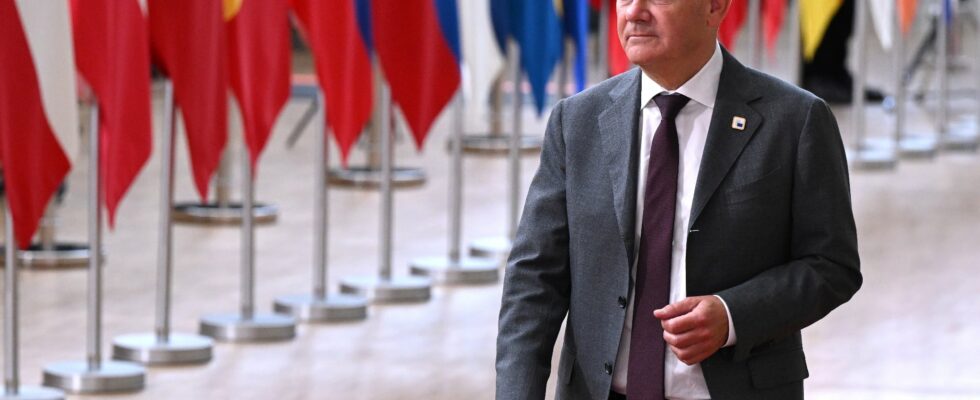This statement had the effect of a bomb within the European Union. On Monday, September 9, Germany announced that it would be implementing police checks for six months at the borders with France, Luxembourg, the Netherlands, Belgium and Denmark starting on September 16. This measure is in addition to the temporary checks already established near Poland, the Czech Republic, Austria and Switzerland. In addition to announcing this controversial measure, Berlin also stated its desire to strengthen the return of asylum seekers to the member country through which they enter the territory. And this, without even allowing them to submit an application in Germany. In the eyes of its European neighbors, Olaf Scholz’s government has just gone one step too far.
“Damaging the fundamental achievements of the EU”
“The answer cannot be the unilateral abolition of Schengen and passing the buck to the countries located on Europe’s external borders. These controls will not allow the free movement of citizens and will harm the fundamental achievements of the European Union,” Greek Prime Minister Kyriakos Mitsotakis protested on Talk Radio on Thursday, September 12. His Austrian counterpart Gerhard Karner, for his part, reportedly assured the daily newspaper Frankfurter Allgemeine Zeitung that his country “would not accept people turned away from Germany”.
The Polish Prime Minister, who gave the announcement an equally frosty reception, is hoping to see the situation resolved. “In the coming hours, we will be contacting the other countries affected by these decisions from Berlin, in order to urgently coordinate a reaction within the European Union,” Donald Tusk said on Tuesday, denouncing a “large-scale suspension” of free movement within the Schengen area.
Only Hungarian Viktor Orbán was happy about such news on the social network X: “Germany has decided to impose strict border controls to stop illegal migration. Chancellor Scholz, welcome to the club! #StopMigration.” He, who threatens to send migrants by bus to Brussels after denouncing the “unfair” fine of 200 million euros imposed by the Court of Justice of the EU for non-compliance with the right to asylum, intends to rally the German chancellor to his cause.
A reform of the Schengen code
But despite the anger of its neighbours who accuse it of going it alone, Berlin is exercising its rights by deviating from the rules of free movement in the Schengen area. While a few months ago this was prohibited within the European Union, a reform of the Schengen code now authorises it in the event of a threat to internal security, since 24 May 2024. On one condition: notifying Brussels. For the moment, although the Commission has indeed been notified by the German Interior Ministry, the latter has announced that it does not want to “speculate” on the substance of the provisions and stated that it would soon “assess the situation”.
If the legitimacy of this measure is difficult to measure for Brussels, it is because Berlin claims that these provisions are necessary for “the protection of internal security against the current threats of Islamist terrorism and cross-border crime”. At the end of August, the deadly attack committed in Solingen, by a Syrian who was subject to a deportation measure to Bulgaria, brought the debates on immigration back to the forefront. “To speed up the deportations and prevent these people from disappearing into thin air, [le gouvernement] “wants to place them in detention or in other establishments subject to strict conditions,” announced Nancy Faeser, German Minister of the Interior.
But within the country itself, the toughening of the fight against illegal immigration is the subject of lively debate. Following the clear electoral successes of the far-right AfD party in two regional elections in early September, the German government was forced to increase its initiatives on migration policy. The main conservative opposition party (CDU) also did its part by demanding that Olaf Scholz make greater use of the return of asylum seekers. With the conservative opposition far ahead of the Chancellor’s social-democratic coalition in the polls, the latter managed to win its case. At the end of August, Germany had already deported 28 Afghans convicted of crimes. A first since the Taliban returned to power in August 2021.
